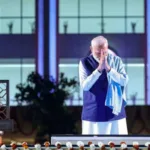In recent years, the alarming rise in heart attacks among young individuals has become a pressing health concern. Renowned cardiac surgeon Dr. Devi Prasad Shetty, Chairman of Narayana Health, sheds light on this worrying trend and offers valuable advice on prevention.
The Underlying Causes
Dr. Shetty emphasizes that sudden cardiac arrests in young people are rarely without an underlying issue. “No one dies from sudden cardiac arrest with a normal heart. There is always an undiagnosed problem,” he stated at the BT MindRush 2025 event. Factors such as undetected heart conditions, lifestyle changes, and stress are contributing to this surge.
The Role of Lifestyle
Modern lifestyles, characterized by sedentary habits, poor dietary choices, and high stress levels, are significant contributors. Smoking, excessive alcohol consumption, and lack of physical activity further exacerbate the risk. Dr. Shetty highlights the importance of regular exercise, recommending walking at least 10,000 steps daily to improve overall health.
The Importance of Regular Health Monitoring
Dr. Shetty advocates for routine health check-ups, including ECGs, echocardiograms, and CT angiograms, which can detect hidden heart conditions early. “Knowing your numbers—blood pressure, cholesterol, kidney function, and heart health—is crucial for prevention,” he advises.
Obesity and Its Impact
Obesity, particularly abdominal obesity, is another major risk factor. It increases blood pressure, cholesterol levels, and insulin resistance, all of which strain the heart. Dr. Shetty urges individuals to prioritize a balanced diet and regular exercise before considering medical interventions.
A Balanced Approach to Health
Dr. Shetty underscores the importance of a holistic approach to health, combining regular medical check-ups, mindful eating, exercise, and even spirituality. He warns against excessive cardio workouts and advocates for sustainable, long-term fitness routines.
Conclusion
The rise in heart attacks among young people is a wake-up call for society to prioritize heart health. By adopting healthier lifestyles, undergoing regular health screenings, and addressing underlying issues, individuals can significantly reduce their risk. As Dr. Shetty aptly puts it, “Feeling fit doesn’t always mean being healthy. The only way to protect yourself is to know your numbers.”
This growing trend serves as a reminder that proactive measures and awareness are key to combating heart disease in the younger population.











